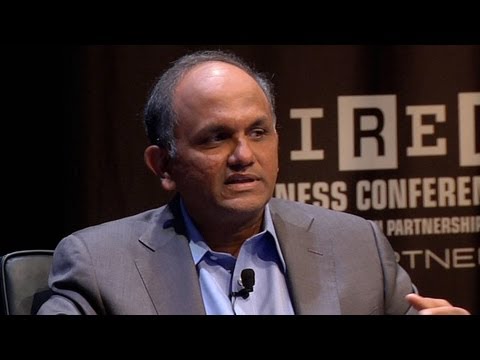The Truth About Ultra-Marathons: Tips and Tricks from Dean Karnazes
Summary
Dean Karnazes, an accomplished author and ultra marathoner, shares insights on the world of ultra-marathons. From eating during the run to maintaining constant forward momentum, Karnazes has an arsenal of advice for aspiring and seasoned runners alike.
Table of Contents
- Eating and Drinking during an Ultra-Marathon
- Breathing Techniques for Running
- Training and Fueling Up during an Ultra-Marathon
- Staying Mentally Focused during an Ultra-Marathon
- Running as You Age
Introduction
Ultra-marathons are grueling races that push runners to their limits, and beyond. As a sport that transcends traditional marathons, ultra-marathons require more than just physical endurance – they demand mental fortitude, a keen understanding of one’s body, and a deep love of the sport. In this Q & A session with Dean Karnazes, we learn about the truths and myths surrounding ultra-marathon running, and glean some tips and tricks for aspiring runners.
Q & A
Eating and Drinking during an Ultra-Marathon
Q: Dean, runners often eat and drink during a race. Can you tell us more about this practice and how it affects your body during an ultra-marathon?
A: Yes, runners do eat and drink during a race. It’s essential to maintain a steady flow of energy to keep going. However, sometimes it can cause runners to upchuck, and that’s not fun. So, we have to be mindful of what we eat and drink, balancing fuel with hydration. It’s a delicate dance because our stomachs don’t function the same way during intense exercise. The longer the race, the more critical it becomes to stay fueled.
Q: Given the possibility of upchucking, what are your eating preferences during a long race?
A: I prefer simple foods that are easy on my stomach, such as energy gels, bananas, basic sandwiches, and boiled potatoes. It’s crucial to replenish calories during ultra runs as one’s body can burn up to 8000 calories or more during a race.
Q: How often do you eat or drink during a race to maintain optimal performance?
A: There’s no fixed answer as it varies from person to person. Some people need to eat more frequently while others can manage with fewer stops. I usually eat and drink every half-hour or so because that’s what works best for me.
Q: Is dehydration a concern during ultra marathon running, and how do you handle it?
A: Dehydration is a significant concern during races as it can lead to heat stroke, which is life-threatening. To combat dehydration, runners use hydration packs or belts that allow them to carry water over long distances. I prefer hydration packs with pockets in the front that you can store energy bars and gels for quick access.
Breathing Techniques for Running
Q: What’s your go-to breathing technique when running?
A: I recommend nose breathing for shorter distances as it warms the air and makes it easier to breathe. But for longer runs, any breathing technique that works for the runner is fine. Some runners prefer mouth breathing while others like to alternate between nose and mouth breathing. It’s essential to keep a steady and consistent breathing rhythm to maintain optimal performance.
Training and Fueling Up during an Ultra-Marathon
Q: What are some helpful tips for training and fueling up during an ultra-marathon?
A: Hydration is key, so it’s crucial to start hydrating several days before the race. Four days before the race, start fueling up with complex carbohydrates instead of carb-loading the night before. Take baby steps to avoid getting discouraged when returning to running shape. A good trick is to sign up for a race and tell friends to increase support. Invest in good shoes that are comfortable and don’t cause blisters. And finally, cross-training with other sports is helpful to avoid overuse injuries.
Staying Mentally Focused during an Ultra-Marathon
Q: How do you stay mentally focused during an ultra-marathon?
A: Running an ultra-marathon is as much a mental game as it is a physical one. I break down the race into smaller milestones and focus on each milestone, not the whole thing. I stay mindful and present and keep checking in with how I’m feeling. Sometimes I listen to audiobooks or just tune out completely to avoid getting bored. But mostly, I focus on persevering and pushing through the tough moments.
Running as You Age
Q: Does age affect one’s ability to run ultra-marathons?
A: Yes and no. It’s more difficult to take up ultra-marathon running as an older person and requires more patience and care when training. But age is not a limiting factor, and many runners continue to run ultra-marathons well into their sixties and seventies.
Conclusion
Ultra-marathon running is a grueling and demanding sport, but it’s also incredibly rewarding. With the right training, mindset, and attention to fuel and hydration, anyone can take on the challenge of an ultra-marathon. As Dean Karnazes shows, it takes practice and patience, but it’s a journey that’s worth taking.







